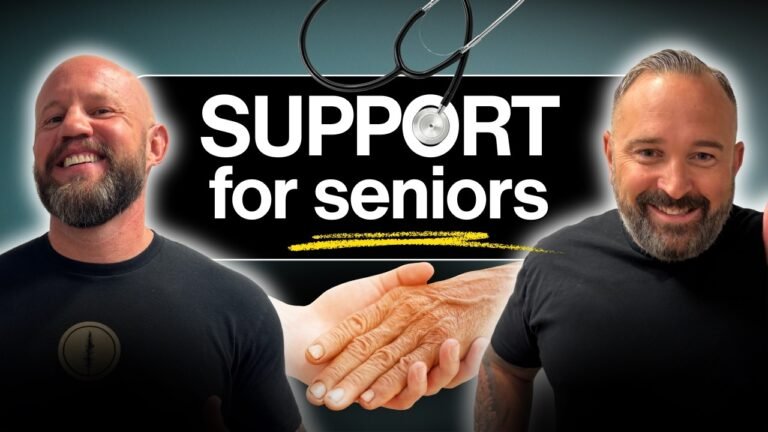Good vs. Evil in America: Lessons from the Charlie Kirk A$sassination
When a nation loses a public figure to violence, it isn’t only a life that’s taken—it’s a mirror held up to our collective conscience. In the aftermath of Charlie Kirk’s assassination, many Americans—parents, students, first responders, people of faith, even long-quiet moderates—are asking the same question: What, exactly, are we up against? And just as importantly: How do we respond?
This conversation isn’t about glamorizing a tragedy or canonizing a man. It’s about naming the patterns we’re seeing, rejecting the easy slide into vengeance, and choosing a moral framework that actually heals. Below are the hard lessons this moment is forcing on us—and the better path we can still take.
1) Dehumanization is the fuel; violence is the spark
Every era that tolerated political violence began with a quieter permission: dehumanize the other side. When opponents become caricatures—“idiots,” “extremists,” “monsters”—you don’t have to hear them, you only have to beat them. That’s the slippery slope from debate to destruction.
Charlie Kirk made his name by inviting debate—often on hostile campuses—arguing facts over feelings and asking clarifying questions rather than shouting people down. Whatever you thought of his conclusions, his method modeled civil discourse. That’s precisely why the assassination lands so hard: it suggests we’ve crossed a line where some would rather silence a voice than answer an argument.
Anchor text: If you’re unfamiliar with the campus-dialogue movement he inspired, explore the student-led work at Turning Point USA.
2) Our kids are watching—and can’t unsee it
One raw truth from the conversation: yesterday’s forbidden VHS is today’s viral clip. Graphic videos of death now reach middle-school group chats before parents can process what happened. That doesn’t mean we hide from reality; it means we shepherd kids through it.
Practical steps that help:
- Talk first, not last. Ask what they’ve seen, and what it made them feel. Normalize the gut-punch; desensitization is not strength.
- Name good and evil with outcomes. Good protects life, dignity, and community; evil celebrates harm, chaos, and domination.
- Model restraint. When adults rush to score points online with gruesome footage, we make cruelty contagious.
3) Vengeance is a counterfeit virtue
Rage feels righteous. It is not. Responding to murder with celebration—or to insults with mob justice—marks us, not our enemies. The contrast after recent tragedies is telling: in some cases we’ve seen riots, arson, and looting; in this case, we saw vigils, prayer, and a surge of spiritual searching. The point isn’t to dunk on anyone; it’s to notice which responses heal and which responses harm. (Public reporting has documented both the assassination and the widespread public reaction; regardless of one’s politics, the distinction in outcomes matters.)
If “good vs. evil” sounds abstract, start here: Good refuses to mirror evil’s tactics. Full stop.
4) Rebuilding a moral framework—faith, philosophy, and first principles
You don’t need to be a theologian to recognize that a durable moral framework beats vibes, trends, and doomscrolling. For many, that framework is faith—particularly Christianity, which insists on the equal dignity of every person and the danger of nursing hatred in the heart. Others will build their ethics through philosophy and natural law. Either way, the work is the same:
- Tell the truth even when it’s unpopular.
- Protect the innocent even when it’s inconvenient.
- Hold your own side to standards even when it costs you applause.
That’s not weakness; that’s strength under discipline.
5) Conversation over compulsion
One insight worth preserving from Kirk’s public work is that persuasion beats coercion. Free speech, open forums, and real debate are the antidotes to ideological fever. We can fight fiercely over ideas and still refuse to fight people. That means no “witch-hunts,” no deplatforming as a first resort, and no cheering for harm. It also means institutions that punished speech should reconsider whether they educated—or merely indoctrinated.
For ongoing transparency and accountability in public life, groups like Judicial Watch often use litigation to force sunlight on claims that would otherwise remain rumor. Evaluate their filings for yourself; agreeing isn’t required, thinking is.
6) Order, justice, and the human element
Another thread raised in the conversation: When systems fail to restrain repeat offenders, innocents pay. Reforms should pursue equal justice under law—neither cynical nor sentimental. Technology may help (e.g., structured risk assessment), but it must never replace human conscience. Justice requires both memory (facts, precedent) and mercy (wisdom applied to persons). Strip either, and you get either chaos or coldness.
7) What now? Boldness with boundaries
“Be bold” doesn’t mean “be reckless.” Here’s what principled boldness looks like in ordinary life:
- At home: Teach your kids to spot propaganda and to ask better questions than the algorithm supplies.
- At work: Defend colleagues’ right to speak—even when you disagree. A free society can’t survive if only one side gets a microphone.
- In community: Practice “values over tribe.” Break bread with neighbors across the aisle and refuse the lazy slur that disagreement equals hate.
- Online: Post with the assumption that your future self (and your kids) will read it out loud. Because they will.
And in all places: Choose peace where you can; stand firm where you must.
8) It shouldn’t be about a man; it should be about the message
If Kirk were here, many believe he’d say the same: Don’t make it about me. Make it about truth, courage, and love of neighbor. That’s the only revolution that outlasts the news cycle. And if one life taken can awaken thousands to think clearly, speak bravely, and love sacrificially, then good is already robbing evil of its victory.
Final word
America’s not past saving; it’s past pretending. This is a choosing time. If we train our eyes to discern outcomes—what protects life and dignity versus what delights in harm—we’ll stop being played by outrage and start rebuilding the common good.
If you’re ready to move from reaction to action, let’s talk about next steps for your family, team, or community. Contact NIE and we’ll help you craft a values-forward plan for courageous, civil engagement where you live.
Listen, Watch, Read






Your Guide to Idaho’s Best-Kept Secrets
Join our email list for exclusive insights, local tips, and the latest listings. Get closer to the Idaho lifestyle you’ve been dreaming of. Sign up today!






